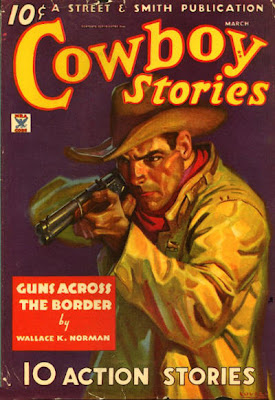Now out. Book available through CreateSpace. Linked here.
https://www.createspace.com/6462047
|
|||

Now out. Book available through CreateSpace. Linked here.
https://www.createspace.com/6462047
|
|||
“Well regulated,” part 2: Strict constructionism means paid lobbyists?
Picking up where the previous post left off–
“Well regulated” was praise in this country at the time America was born. For eighteenth-century American colonists, well-regulated was everything the ridiculous Georges on the English throne were not. The Swiftian, satire-worthy courts under the British kings were repudiated in the law courts of the new United States, regulated rather than bought, in check rather than ruled by fear or favor. In the new country–or this was the aim–the king as sovereign in every courtroom was replaced by the people, sovereign in every courtroom. Neither judges nor testimony were to be either bought, or coerced. Unlike the English court, where according to reputation anything and anyone could be bought for a price or pushed around if not, in America no private citizen or public official, however understandable his motivations, was to impose his will unjustly on others by force or fraud. “Well regulated” was encomium, but it was more than just a compliment; it was the antidote to force and fraud, the two basic forms of all injustice according to Aristotle, Aquinas, Dante, Milton and the founders. “Well regulated” was the widely applied tag, applied especially to everything self-evidently in need of regulation–militias, governments, the passions of men; taverns, society, commerce. “Well regulated” incontrovertibly applied to individuals as well as to groups, self-governance being as important a principle as governance res publica.

Assault firepower
Funny how the gun nuts and their well-paid users on K Street always represent ‘regulation’ as the enemy. But then, our highly paid lobbyists and the politicians in their pockets–former politicians and future lobbyists, respectively–are no constitutional purists. You never see them out rallying against a standing army in peacetime, and in fact they tend to distance themselves from the diehards places like in rural Idaho who do oppose government military. Since they are to a man either Republicans or ‘blue dog’ Democrats committed to the wedge issues of McCarthyism, racism, and bloodshed-ism, you seldom see them even refer to waste, fraud and abuse in the military-security-industrial complex. The last people to go to about billions in cost overruns by federal contractors are the protectors of quiet super-wealth masquerading as rugged-individualist loudmouths. Currently they do not even mouth off about foreign ownership of U.S. assets, a topic one might think tailor-made for the more-chauvinist-than-thou types.
It will be noted that the massive contradiction to the high principle outlined in the first paragraph above was slavery. Enslaved people did not, to put it nicely, have the full protection of the law and courts created by their enslavers. Predictably, this hideous part of U.S. history also gets exploited by K Street (name used here as metonymy). The gun lobby often reaches out to selected individuals of color, to be part of ‘the new face of gun rights’. The individuals thus selected often get their statements into print or on air, too, on the journalistic basis of man-bites-dog: After all, historically excluded groups have not benefited from the abuses of the weapons industry, so members speaking on its behalf tend to be exceptions. By the same token, the indigenous peoples of the new continent also did not enjoy equal protection under the law in colonial times, nor did women, nor did children, so the gun lobby has its female reps–although even the NRA has yet to argue that children should have the right to concealed carry. Interestingly, you also don’t see the NRA arguing that Native Americans should be carrying semi-automatics, although as with foreign ownership of American property, the topic might seem inviting; Native Americans with their bows and arrows were by all historical accounts ill-matched against the industrial advances of the Europeans. Perhaps for some reason the NRA is uncomfortable with the notion of standing up for primitive societies and indigenous peoples around the globe. Or perhaps defending American Indians just does not comport well with that cowboy image the gun lobby tries to project.

Guns Across the Border
UPDATE April 30–This just in:
This cannot be coincidence. The gun fanatics are running a billboard featuring Native Americans. Not subtle: A picture of three Native Americans in tribal dress is captioned in giant letters, top and bottom, TURN IN YOUR ARMS and THE GOVERNMENT WILL TAKE CARE OF YOU.

Native Americans targeted by gun fanatics
Are the NRA or its zombies reading this blog? I refuse to say, “I spoke too soon.”
[back to original post]
Speaking of cartoons, cowboys, and borders–
There is more than one falsehood in the ‘2nd Amendment’ catchphrase. Using the U.S. Constitution to justify military-style assault weapons is bogus, and there is more than one way to point it out. The following are a few:
Two final observations, quickly:
One is that the gun lobby’s opposition to common sense is itself opposition to the constitution. Our framers had a rooted belief in not putting unlimited power into human hands, any human hands. They knew the dangers too well. The entire U.S. Constitution embodies that belief. In respect to arms in particular, there are no statements of record legitimizing military-grade arsenals for individuals in peacetime.
The other is that, ludicrous as the above examples are, the gun lobby goes well beyond opposing particular (sensible) policies on firearms. In U.S. gun violence, some of the worst problems and many of the deaths occur in connection with 1) domestic disputes, 2) alcohol or other substance abuse, 3) depression or mental illness, and 4) crime. In U.S. politics, the gun lobby effectively overlaps with the Republican Party. What that means in practical terms is that
Meanwhile, K Street–to use the popular eponym again–works overtime behind the scenes, to short-change the public and to justify short-changing the public.